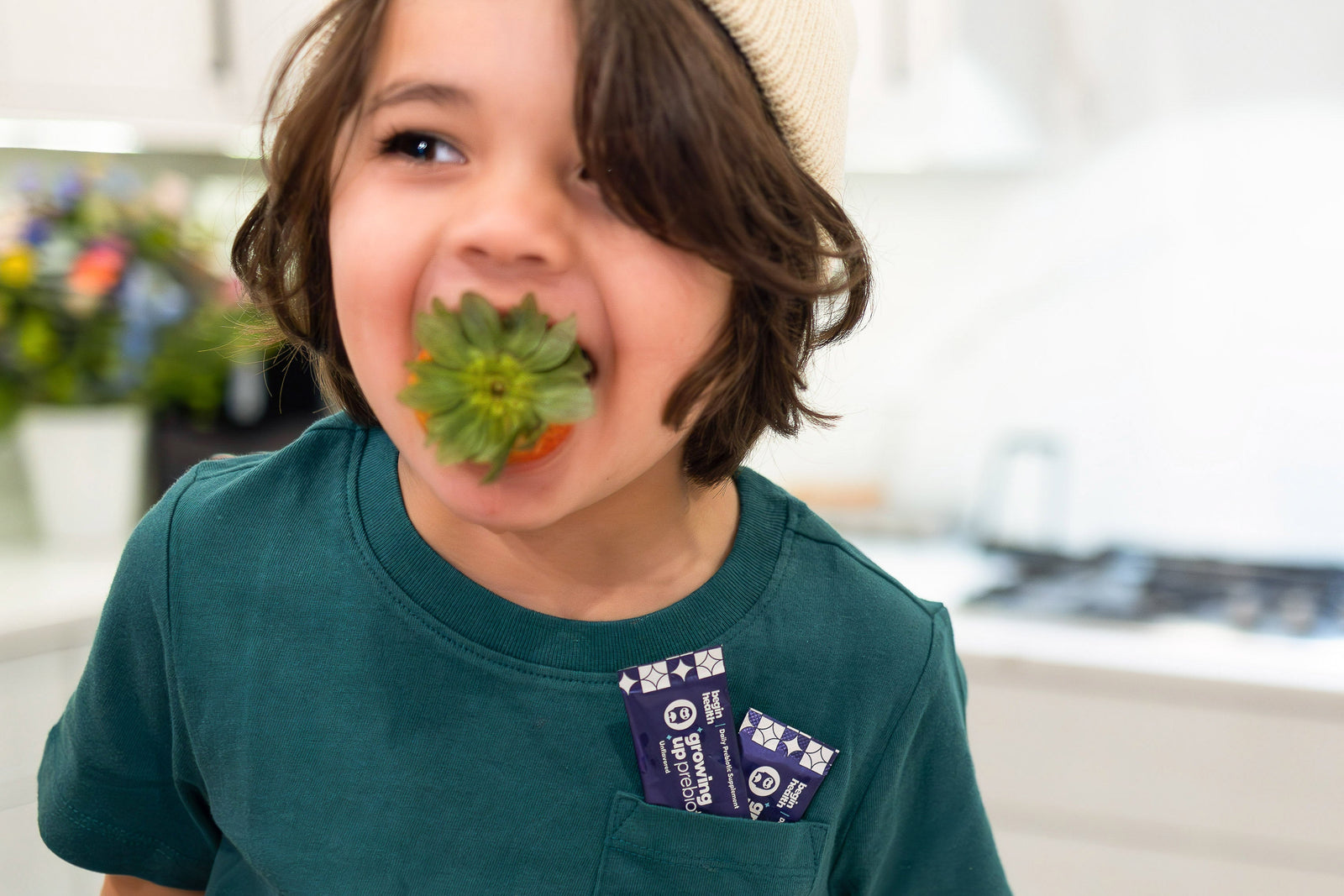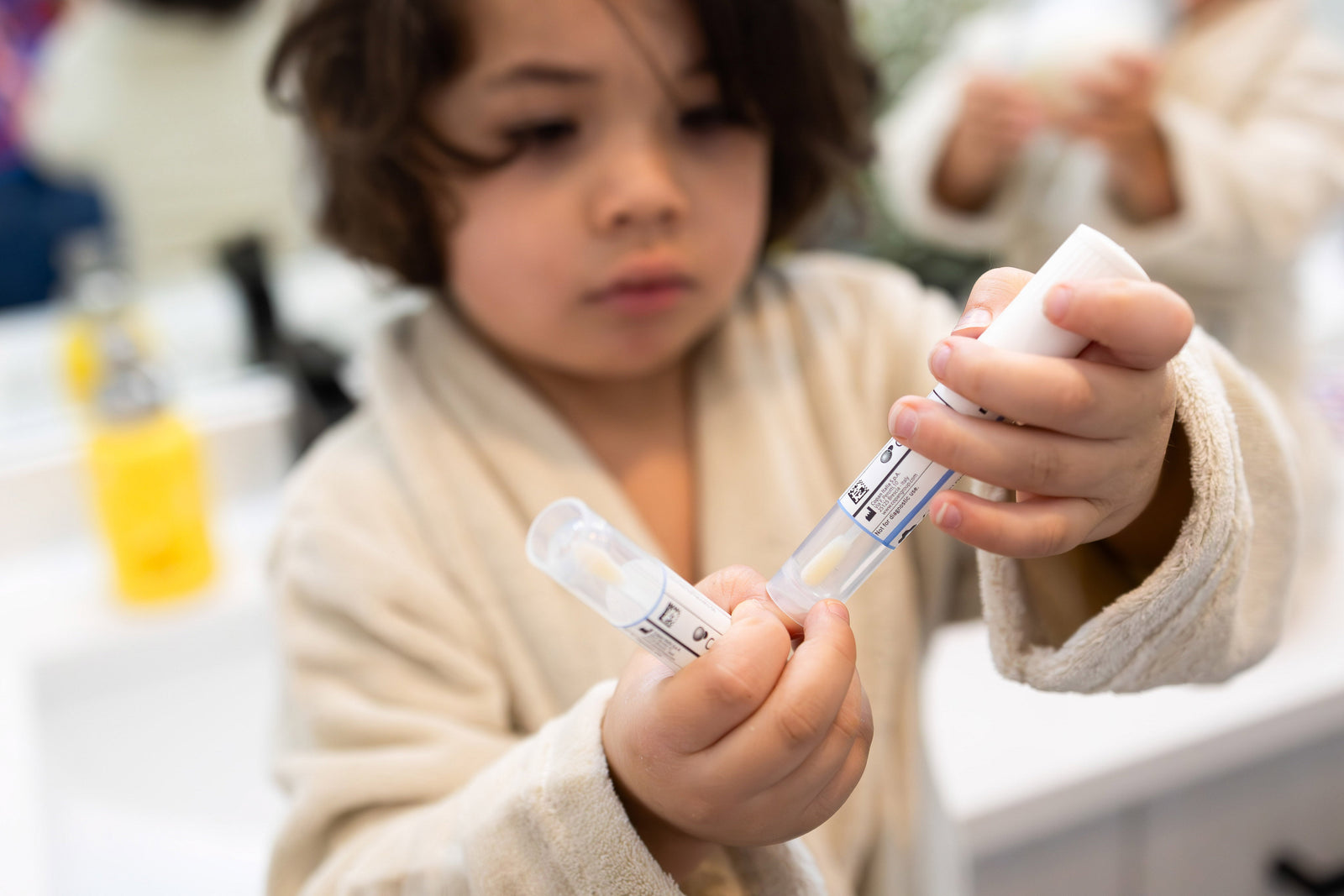Your Cart is Empty
Continue shoppingWhat is Gut Dysbiosis in Kids?
Medically Reviewed by May Zhu, RDN | Published May 13, 2024
share this article

Gut dysbiosis, an imbalance in the gut microbiota composition, is increasingly recognized as a significant factor in our kid's health. This condition can have wide-ranging effects on digestion, immunity, and overall well-being. In this article, we'll review what gut dysbiosis is, its potential causes, symptoms, and strategies for management.
What is Gut Dysbiosis?
Gut dysbiosis refers to an imbalance in the gut microbiota, the diverse community of microorganisms residing in the gastrointestinal tract. This imbalance can involve changes in the relative abundance of beneficial bacteria, harmful bacteria, fungi, and other microorganisms. In a healthy gut, there is a delicate balance among these microorganisms, contributing to various physiological functions such as digestion, nutrient absorption, and immune regulation.
Daily reads to help your little ones lead happier and healthier lives.
Buy Now Buy Now
Join the
Happy Gut Club
Potential Causes of Gut Dysbiosis in Kids
Several factors can contribute to the development of gut dysbiosis in our little ones:
1. Antibiotic Use:The use of antibiotics, while essential for treating bacterial infections, can disrupt the balance of gut bacteria by killing both harmful and beneficial microorganisms.
2. Diet: Poor dietary habits, including excessive consumption of processed foods, high sugar intake, and insufficient fiber intake, can alter the composition of the gut microbiota.
3. Early Life Factors: Events occurring during infancy, such as delivery mode (cesarean section vs. vaginal birth), breastfeeding vs. formula feeding, and early exposure to antibiotics, can influence the establishment of the gut microbiota and predispose kids to dysbiosis later in life.
4. Environmental Factors:Environmental factors, including exposure to pollutants, toxins, and stress, can also impact the gut microbiota composition and function.
Symptoms of Gut Dysbiosis in Kids
The symptoms of gut dysbiosis in our little ones can vary widely and may include:
1. Digestive Issues:These may include abdominal pain, bloating, gas, diarrhea, constipation, or irregular bowel movements.
2. Immune Dysfunction: Gut dysbiosis can compromise immune function, leading to an increased susceptibility to infections, allergies, and autoimmune conditions.
3. Behavioral and Neurological Symptoms:Some kids with gut dysbiosis may experience behavioral issues, mood disturbances, or neurological symptoms such as brain fog or poor concentration.
4. Skin Conditions:Skin problems such as eczema or chronic rashes may be linked to gut dysbiosis in some kids.
Management Strategies for Gut Dysbiosis
1. Probiotics:Probiotic supplements containing beneficial bacteria strains can help restore microbial balance in the gut. Lactobacillus and Bifidobacterium species are commonly used probiotics in kids.
2. Prebiotics: Prebiotic fibers found in fruits, vegetables, and whole grains serve as fuel for beneficial gut bacteria, promoting their growth and activity.
3. Dietary Modifications: Encouraging a diet rich in fiber, fruits, vegetables, and fermented foods can support a healthy gut microbiota.
4. Minimize Antibiotic Use: Whenever possible, limit the use of antibiotics to essential cases, and explore alternative treatment options when appropriate.
5. Reduce Stress:Implement stress-reduction techniques such as mindfulness, relaxation exercises, and adequate sleep to support a healthy gut-brain axis.
Summary
Gut dysbiosis is an imbalance in the good vs. bad bacteria in the gut microbiome and can significantly impact a kid's health and well-being, affecting various aspects of digestion, immunity, and overall physiological function.

Author
May Zhu, RDN
Trending

Why Parents Are Choosing Prebiotics Over Stool Softeners for Kids
read now
Oxalates and Kids' Digestion: How High-Oxalate Foods Contribute to Constipation and Gut Discomfort
read now
5 Signs Your Toddler Needs a Poop Test
read now







